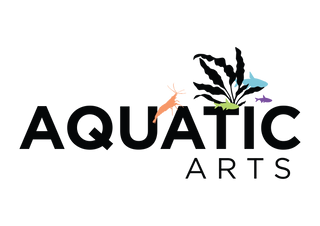Community Fish Featured Spotlight: Penguin Tetras (Thayeria boehlkei)

Introduction:
Discover the captivating world of Penguin Tetras (Thayeria boehlkei), beloved among aquarists worldwide for their striking appearance, peaceful demeanor, and lively disposition. These charming freshwater fish are an ideal addition to any community aquarium, bringing beauty and vitality to aquatic environments.

Natural Habitat: Penguin Tetras are native to the clear, slow-moving waters of the Amazon River basin in South America. They are often found in densely vegetated areas, where they can hide and find shelter among plants and submerged roots.
Appearance:
Penguin Tetras are aptly named for their striking resemblance to tuxedo-clad penguins. With their sleek, elongated bodies, contrasting black dorsal region, and pristine white underside, they make a captivating sight in any aquarium. A thin horizontal stripe adds to their elegance, while transparent fins provide a delicate touch to their overall appearance.
Behavior and Temperament:
Renowned for their peaceful and sociable nature, Penguin Tetras thrive in groups of at least six individuals. Exhibiting shoaling behavior, they feel most secure among their own kind, often displaying synchronized swimming patterns. Despite their calm demeanor, they are active explorers, gracefully navigating through plants and decorations, bringing life and movement to their aquatic home.
Tank Requirements:
Creating an ideal habitat for Penguin Tetras is simple. A well-planted aquarium with ample swimming space and subdued lighting mimics their natural Amazonian habitat. Dense vegetation offers hiding spots and retreats, while maintaining stable water parameters, including slightly acidic to neutral water and temperatures between 72°F to 78°F (22°C to 26°C), is crucial for their well-being.
Diet:
As omnivores, Penguin Tetras enjoy a varied diet comprising high-quality flakes, pellets, and live or frozen foods such as bloodworms, daphnia, and brine shrimp. Offering a diverse diet ensures they receive essential nutrients to maintain their vibrant colors and vitality.
Compatibility:
Penguin Tetras are prized for their compatibility with a wide range of peaceful tankmates. They coexist harmoniously with other community fish species, including tetras, rasboras, danios, and bottom-dwellers like Corydoras catfish and small loaches. However, it's important to avoid aggressive or oversized species that may intimidate or prey on them.

Distinctive Sounds: While not often recognized, Penguin Tetras are capable of producing faint clicking sounds by grinding their teeth together. These sounds are believed to serve as a form of communication or territorial behavior, especially during breeding or feeding times.
Breeding:
While less common, breeding Penguin Tetras is achievable with the right conditions. A well-planted breeding tank with slightly softer, acidic water can stimulate spawning. After laying eggs, adult fish should be removed to prevent them from consuming them. With proper care, the eggs hatch within 24 to 36 hours, and the fry can be fed infusoria or commercially available fry food.
Q&A Section:
Q: How many Penguin Tetras do I need to make a school?
A: It's recommended to keep Penguin Tetras in schools of at least six individuals to promote their natural shoaling behavior and ensure their well-being.
Q: How big do Penguin Tetras get?
A: Penguin Tetras typically reach a maximum size of around 2 to 2.5 inches (5 to 6.5 centimeters) in length when fully grown, making them suitable for a variety of aquarium setups.
Q: What are the best tank mates for Penguin Tetras?
A: Penguin Tetras coexist well with peaceful community fish such as other tetra species, rasboras, danios, Corydoras catfish, and small loaches.
Q: What fish or invertebrates should I avoid keeping with Penguin Tetras?
A: Avoid housing Penguin Tetras with aggressive or predatory species, as well as large or aggressive bottom-dwellers that may pose a threat to them. Opt for tank mates with similar temperament and size compatibility for a harmonious aquarium environment.
Conclusion:
Penguin Tetras are a delightful addition to any community aquarium, offering beauty, peace, and vitality. Their compatibility with various tankmates and straightforward care requirements make them suitable for aquarists of all levels. By providing a suitable environment and balanced diet, aquarists can enjoy the graceful presence of Penguin Tetras for years to come.
For those interested in adding Penguin Tetras to their aquarium, they are readily available at Aquatic Arts. With a commitment to quality and excellence, Aquatic Arts provides healthy and vibrant Penguin Tetras, ensuring a positive experience for both novice and seasoned aquarists alike. Explore Aquatic Arts' selection of Penguin Tetras and other aquatic treasures to enhance your underwater world today.




